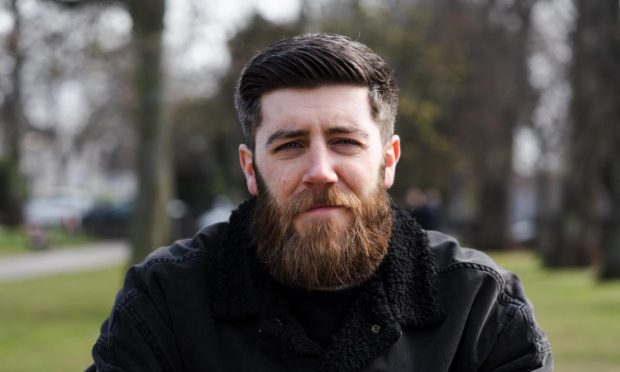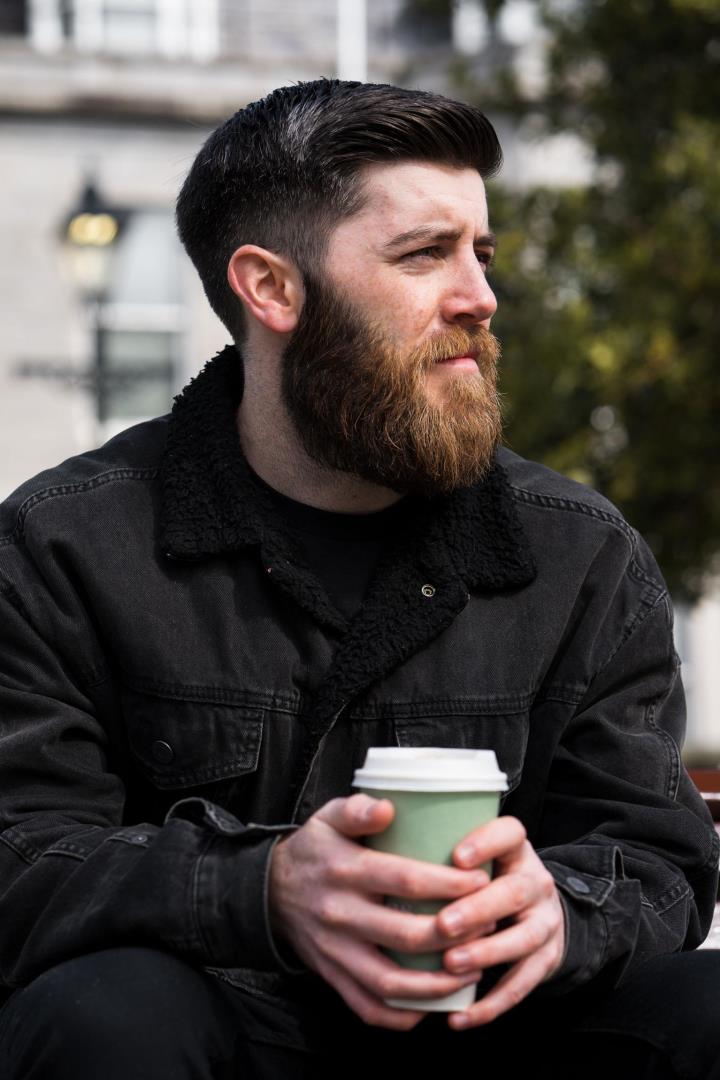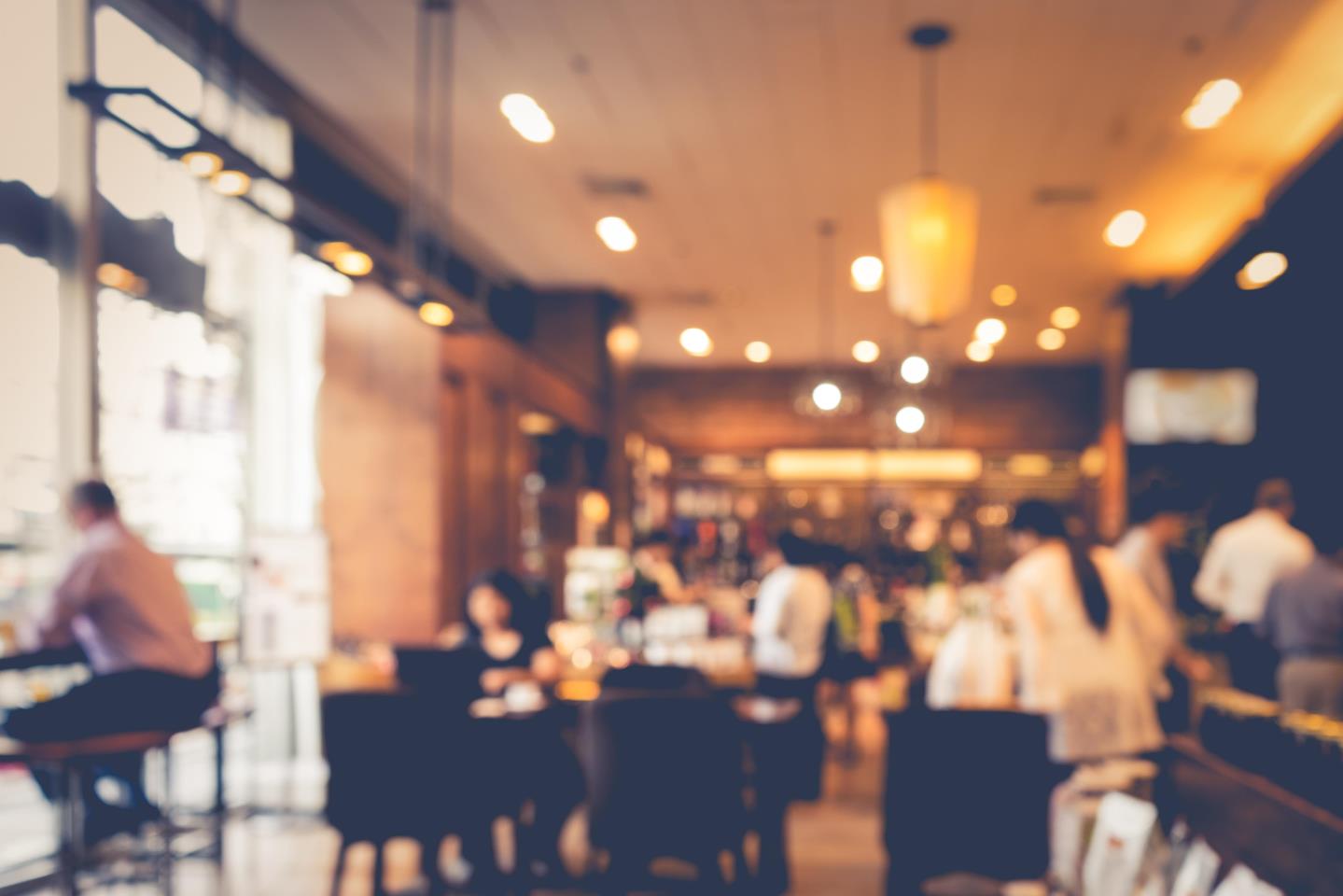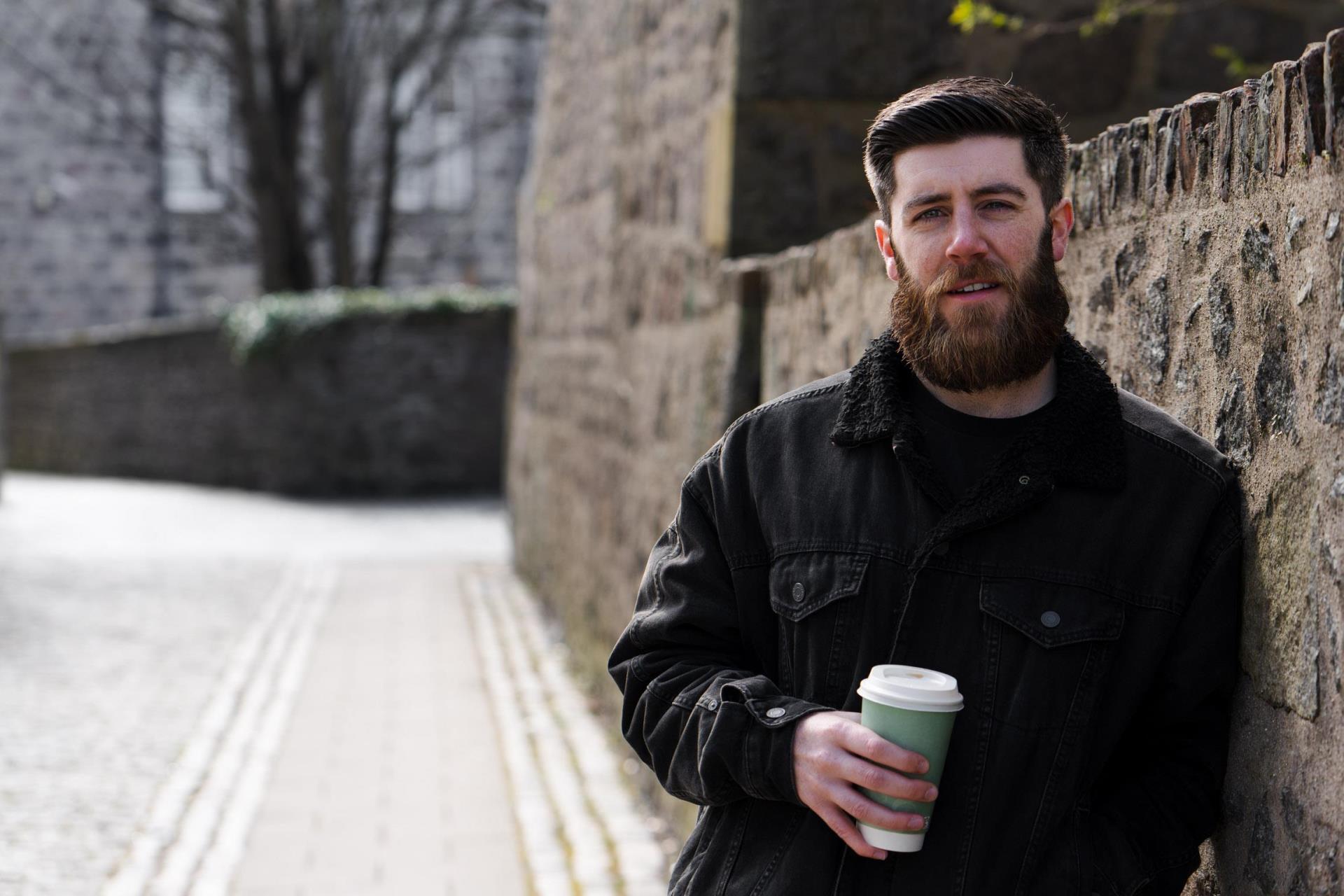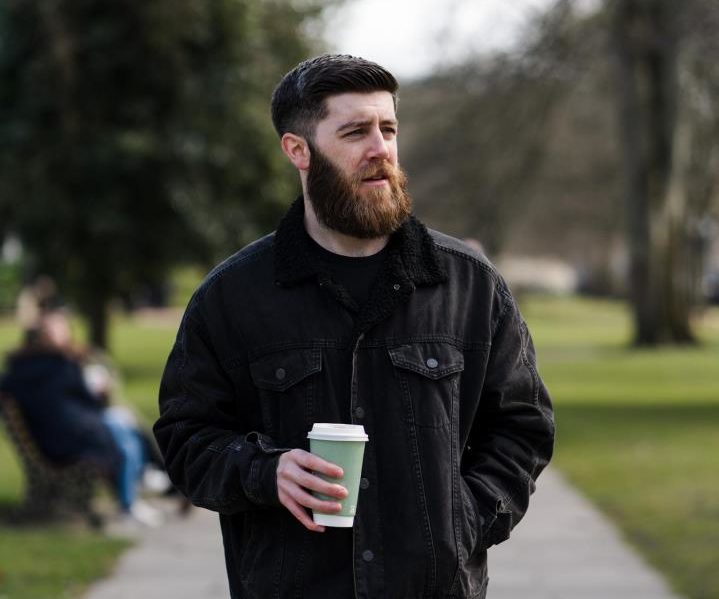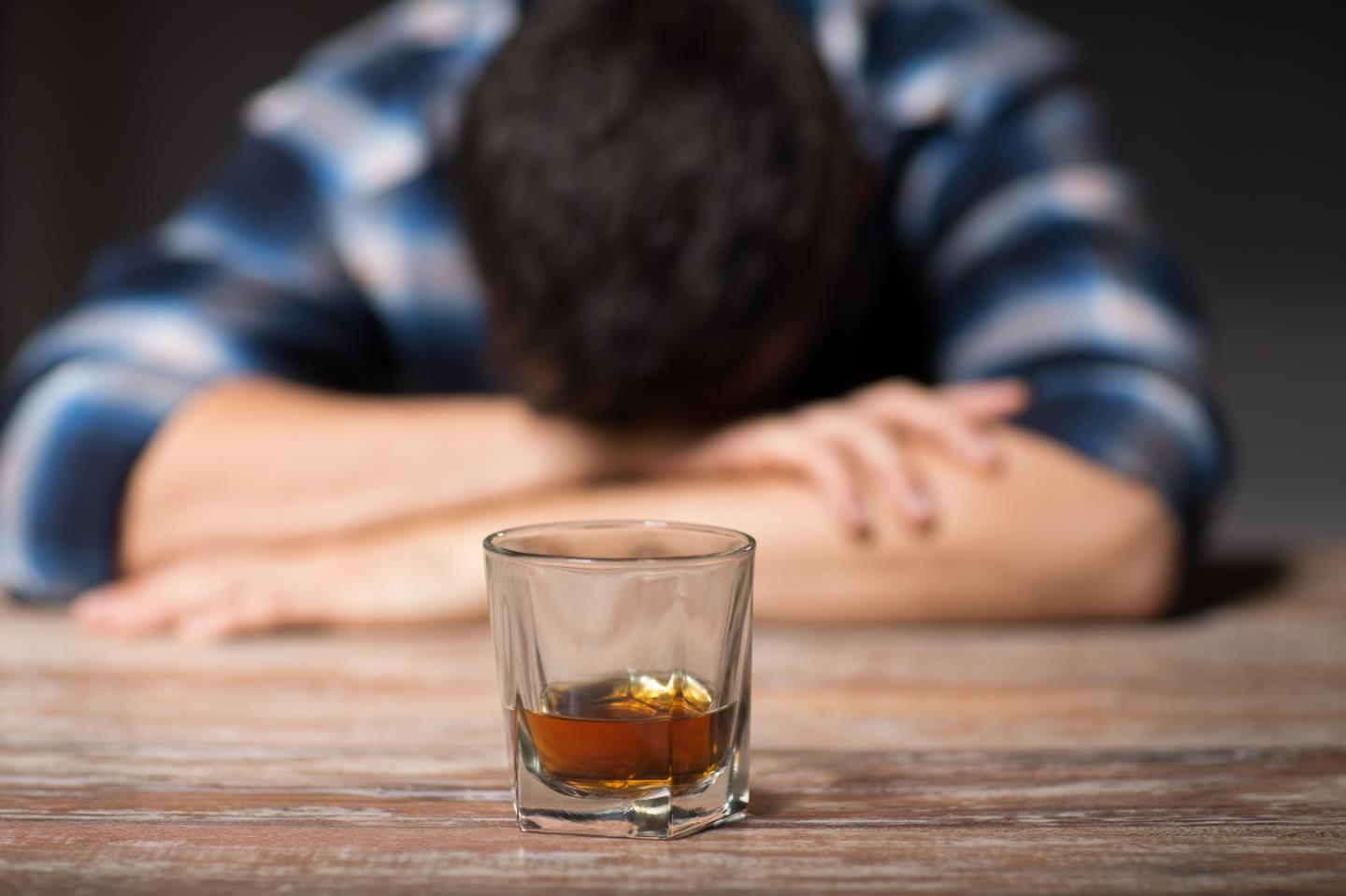Having been on a mission of self-destruction with alcohol for six years, Stuart Ritchie knew he had to act fast after hitting rock bottom if he was to see another year.
Throughout lockdown, north-east man Stuart Ritchie has seen many highs, and many lows.
The Peterhead born 31-year-old has always been what he described as “the life and soul of the party”. However, unbeknown to his friends and family, the past six years has seen him struggle to get a grip on his alcohol problem.
While he was never dependent on alcohol, Stuart’s affair with drink is one that some people will be able to resonate with – drinking excessive amounts of alcohol more regularly than not.
Often, he would reach for one or two, which would result in late-night benders that would see him drink around 10 to 12 beers in one night, and experience blackouts and increasing challenges with his mental health.
Now a personal trainer, Stuart, who worked in the hospitality and drinks sector for 12 years from the age of 18, left the industry in mid-2018 and has focused on his fitness more so since.
But it was the pandemic which, in the end, was where Stuart experienced his lowest low when he blacked out in his parents’ kitchen surrounded by empty beer cans, plagued with suicidal thoughts.
It is a calm, bright afternoon when Stuart and I arrange to meet on Zoom. He looks well, his beard is as immaculate as ever (I have always remembered how well-groomed it was from his time working in a local cocktail bar) and it feels like it was only yesterday that I last saw him. Although it most certainly has been more than a year due to the pandemic.
He tells me he has just moved into his new flat in Aberdeen with his girlfriend and they have just finished decorating the place. I can hear his dog scuttering about and prepare myself for what we are both about to talk about.
Telling me about his problem, Stuart, who is now seven months sober, outlined how it went from drinking being something he loved to do when socialising, to turning into a darker, more consuming thing that spiralled out of control.
His aim of sharing his story is to get more people to open up about their drinking habits and to speak to someone when they feel things have started getting out of control. Across Scotland, lockdown has brought some individuals’ issues to the surface and Stuart hopes he can encourage people to talk more openly.
The beginning
“I had never touched alcohol until I was 18 really. Maybe when I was 17 I would have had a drink in the house where my parents were, so it was in a controlled environment.
“When I turned 18 I was able to go out. When I was underage, I looked far too young to go out anywhere. When you’re 18 it is all just a good laugh and there were no real issues back then.
“I started working in hospitality at a hotel bar in Peterhead and I went to college in Aberdeen. I moved into the city with my friends when I had finished college and started working at a local bar.
“Moving from a small town to Aberdeen, there’s so many places to go out and when you’re working in the bar scene there was always somewhere to go every night.
“The first six years of working in hospitality was fine. I didn’t notice anything but it was more the latter half where things started to be different.
“There were other things going on in my life – I’d broken up with an ex at the time which hit me hard. I started drinking more around that time and I think that relationship may have broken down because of my drinking.
Moving from a small town to Aberdeen, there’s so many places to go out and when you’re working in the bar scene there was always somewhere to go every night.”
“I was working for a different bar at that time and when I moved into working with craft beer more, my drinking habits sort of changed again. Craft beer is such a social thing – there’s always a new beer to try and it became a thing of having to try the next one. There were new ones coming out left, right and centre and that didn’t really help.
“I left the job because in my head I kind of blamed that business for my break up and I wanted to start afresh somewhere with a clean slate. I moved to working in a cocktail bar in the city, which was still the same trade, but maybe made things worse regarding my drinking as it was a late-night venue and there was more of a trade scene there.”
Doctor’s appointments
Experiencing some of his darkest moments while working at the late-night venue, Stuart revealed that even when visiting the doctors, they didn’t press him further about his drinking habits, and instead, prescribed him with anti-depressant medication to make him feel better.
He said: “My drinking took a turn and I experienced some of my lowest points when I worked there. I went on anti-depressants for a while. When I went to the doctors, they would always ask how my drinking was and I would always kind of never really give them a proper answer.
“I’d say ‘I work in the bar trade so it is probably more than the average person’, but would never actually say how much I was drinking on a regular basis. They would never really know the full extent.
“I don’t know how much they thought I was drinking, but they would just put me on tablets to help my mood out. I actually think it was the other way around – my drinking needed to be sorted out to help my mood.
“Even if they had told me to stop or cut back on my drinking, I wouldn’t have because I worked in the trade and I’d have just shrugged it off. I didn’t see it as the issue back then.”
‘Normal’
As Stuart continued to battle with his relationship with alcohol, every day was different. Some were good, some were OK and some were terrible.
Trying to get to grips with his drinking habits, Stuart would binge drink some weekends, or spread out his consumption to satisfy his cravings throughout the week.
“Things went up and down for so long in all the jobs I took on after this. At times my drinking would be OK and I would almost class it as ‘normal’, only having a few drinks at the weekend. Then there were other times I’d get really drunk three or four times a week,” said Stuart.
I went on anti-depressants for a while and when I went to the doctors they would always ask how my drinking was and I would always kind of never really give them a proper.
“When I worked at a brewery out of the city I had to drive in the morning so I’d condense it all into the weekend. Maybe a lot more people do that working nine to five. The last six years took a turn and were just completely different. I thought it was normal.
“New people would come into the trade but I had been in it for so long. How they were drinking when they first came into it is probably how I was at the start and I was doing the same continuously. Things never lined up properly.
“I don’t know if other people in the trade have found themselves in the same situation, where there’s always fresh faces coming in and you try to keep up. As you get older you can’t keep up. You try keep up and crave to have the buzz they are experiencing.
“There’s some underlying issues with the trade, I wouldn’t blame the bars for the issues, but I think there needs to be a big focus on it to help people in my situation who are working in it.”
Pandemic problems
Being stuck at home as a result of the first lockdown last March due to the pandemic, there was nowhere for him to go and not a lot to do.
Living with his parents, his sister and her partner, and his girlfriend, Stuart got into a habit of drinking late, or drinking socially with whoever in the house was consuming alcohol.
He said: “By the time the pandemic came around I had left the trade. When I was working at the brewery, I was training to be a personal trainer. I knew that was what I wanted to do, and I knew, deep down, that alcohol would get in the way of it.
“But even after leaving I didn’t want to give alcohol up because I had been so used to it and I thought, ‘if I give this up (alcohol), I’ll be the most boring person ever because I’ll be giving up everything’.
“When the first lockdown happened, everyone saw it as a time to party for the first few weeks because that’s all we thought we’d be locked down for. There was always someone around to have a drink with in the summer in the evenings. Or we would all start playing board games together and then I would stay up drinking or drink more than everyone else.
“As the pandemic went on, these nights where people wanted to have a drink didn’t happen as much, so I would end up just drinking for the sake of it.
“It wasn’t every day and because I didn’t have anything to get up and do, I didn’t see being hungover as being such a downfall, and I didn’t need to drive anywhere as everyone had to stay at home. There were no consequences apart from feeling rubbish, so I just kept drinking.”
The downfall
Hitting rock bottom last October, Stuart started to experience having suicidal thoughts prior to his breaking point and went on a path of self-destruction.
“There were a few times before that night in October, that things seemed to change and it was more like a self-destruction process. I wanted to drink because I liked that feeling of self-destruction. I don’t know why. I wouldn’t say I wanted to hurt myself, but I just wanted to feel something from it. That’s when I started drinking more and more.
“If I didn’t wake up in the morning that would be fine. That’s the point I got to. I’d just drink and drink and blackout, and not really remember what was going on. I’d hope that I wouldn’t wake up the next day. I thought if ‘I drink alcohol I won’t feel it’ because you are numb to everything.
“I remember that day in October really well. I was sitting with my girlfriend watching films upstairs and I had been to the shops to buy drink. I was just looking for the drinks with a higher alcohol ABV, I was only seeing it as one or two cans of beer, which were actually quite strong, and it would only take one or two for me to want to have another.
“My girlfriend went to sleep and I’d said I was going to go and play around on my laptop but I just went downstairs and tanned as much drink as I could and passed out. That next day I woke up at the kitchen table not really remembering what had happened. There were bottles and cans all around me and I tidied it up as best as I could, even though I was still quite drunk.
“I just had that shameful feeling of regret I always got having not been able to remember what I did. That day I knew deep down I couldn’t keep doing this two or three times a week as I knew it wouldn’t take me long to successfully do what I had been trying to do.”
Seeking help
Turning to Alcoholics Anonymous for guidance, it was this first action that pushed Stuart to make immediate changes in his life.
He is now seven months sober but knows there is a long road still ahead.
“I turned to AA for help as I didn’t know what to do or where to run. I wanted to speak to someone about it and find out if other people had done or felt the same things I had been feeling. I spoke to them on a messenger service over the phone most of the morning while I was in a complete state,” he said.
That next day I woke up at the kitchen table not really remembering what had happened. There was bottles and cans all around me and I tidied it up as best as I could, even though I was still quite drunk.”
“I messaged my girlfriend saying I needed to stop as I was scared I’d do something stupid. She got home from work and we spoke about it. I told her that I had to stop there and then. There was no moderation thing for me.
“Some people try and stop and might be able to have one or two, but that wasn’t the case for me as I knew it only took one or two for me to want to have 10 or 12. There was no middle ground.”
Read about Stuart’s journey to sobriety and why why seeking help was the best thing he ever did.
For anyone who needs help, support or advice or knows someone who may, please contact the below mental health charities or seek guidance from your GP/doctors.
You can also call NHS24 on 111 or Alcoholics Anonymous on 0800 9177650.
- Alcoholic Anonymous
- Mental Health Aberdeen
- SAMH – My Life Dynamic
- Pillar Kincardine
- Penumbra
- Samaritans
- NHS Inform
